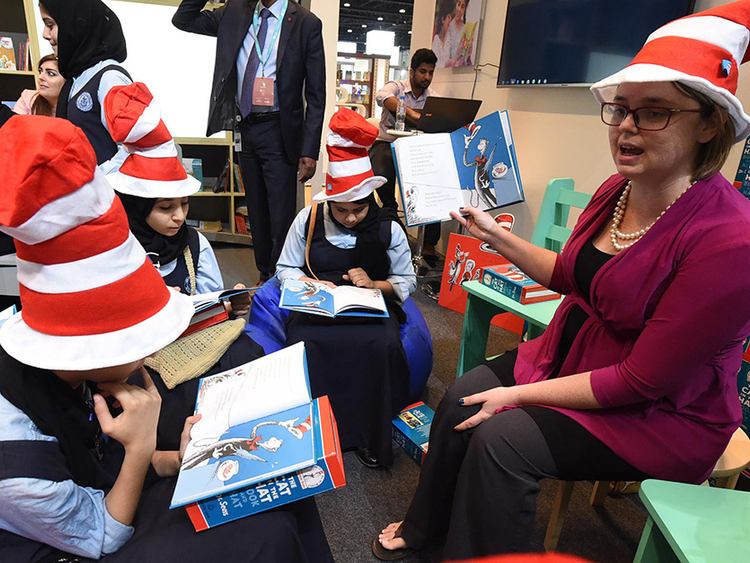The UAE's Year of Reading may be long over, but the essence behind the initiative continues to resonate.
In an age of text messages, study guides, news briefs and storyline recaps, children are used to instant gratification and short communications. The idea of reading books might seem boring or overwhelming for them, so how can you get children to love reading?
Childrens’ choice
“A book that is chosen by a child is more likely to be read than one that is assigned,” says children’s book author Stacy McAnulty, who’s a self-described former reluctant reader.
A mother of three, McAnulty knows that “a child’s tastes will change and grow, but he or she must love reading first”. That means children should be free to read books they like, even if Mum or Dad wouldn’t have chosen the same titles. That also means comic books and picture books are OK.
Beyond books
Teach children that reading is an essential part of everyday life and that literacy isn’t limited to books.“The key is to get kids access to text,” says Kathryn Starke, a national urban literacy specialist in the US and author of Tackle Reading, noting kids can read magazines, newspapers and age-appropriate content online.
Reading routine
Reading specialist and tutor Katya Seberson of ExecutiveMind Inc. says parents should read with children during breakfast and bath time.
“The idea is to start children seeing a movie in their mind as they read a book,” she says, encouraging parents and kids to fill in the gaps of a character description. “Try saying: ‘I see this character as someone who would have a big nose and thick eyebrows!’ By bringing characters alive, you help children activate their imagination.”
On the level
Make sure the child is reading at their level. Kids should be challenged to read but not disheartened.
“If kids have to wonder what words mean, they will feel frustrated with reading, resist and eventually develop a hatred for reading,” says Seberson, explaining the ideal ratio of unfamiliar words is one word per paragraph. “If kids have to ask you for what words mean in each sentence, you have chosen a wrong book.”
Take your time
“Don’t try to rush your child through different concepts,” says Dr Tiffany McKinnon-Russell, who home-schools her five-year-old daughter. “Rushing them can result in frustration and the development of an aversion to reading.”
McKinnon-Russell also advises reading when you and your child aren’t tired. "When you need rest, you have trouble focusing and can tend to have less patience.”
Get competitive
Kids love a competition, so why not make reading a race? “Three or four friends check out the same chapter book from the library, and then it’s a race to see who can finish first,” says McAnulty, whose son does this with his friends.“They’ll read at home, on the bus, at lunch so they can be the first done.”
Just make sure the kids comprehend what they’re reading.
Listen up!
Kids may be motivated to read if they join a book club, especially if that book club is a podcast for literary discussion. The Book Club for Kids podcast is a free 20-minute podcast designed to turn reluctant readers into lifelong book lovers.
The podcast, which won a Literacy in Media award, features such segments as three young readers discussing a middle-grade novel, an interview with the author and a celebrity reader. The Book Club has a newsletter and blog for parents, both of which offer reading tips for kids.
Bring the book to life
Kids will be inspired to read more if their books and characters come to life. “If it’s a book about dinosaurs, go to a dinosaur exhibit,” says Starke. “Write a letter to the author of the book and mail it. Go to the zoo if you’re reading about zoo animals.”
Co-read with your kids
“Kids need to see that reading is a pleasure,” says McAnulty, who encourages parents to coread with kids. “Curl up in bed or on the couch together and each read your own book.”
She also advocates for bedtime stories for little and big kids. “It’s a time to bond and encourages of love of books.”
— Creators.com













